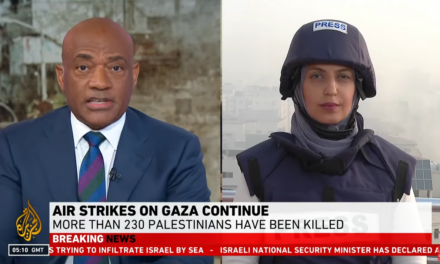Former UN weapons inspector Scott Ritter dives deep into the complexities of the current conflicts in the Red Sea and Gaza, offering insightful commentary and raising critical concerns. From the Houthis’ growing capabilities to Israel’s questionable tactics, Ritter sheds light on the underlying dynamics and potential consequences of these regional flashpoints.
The Red Sea Conflict:
- Houthi Drone Threat: Ritter highlights the Houthis’ increasing use of drones and missiles, expressing concern about their stated desire for confrontation with Israel and the US. He emphasizes the cost inefficiencies of the US Navy’s response, with expensive missiles deployed against drones costing a fraction of the price.
- Underestimating the Houthis: Ritter warns against underestimating the Houthis’ potential, suggesting they might possess advanced Iranian technology like maneuvering warheads or hypersonic missiles. He underscores the US’s inability to secure the Red Sea and the threat posed to Israeli ships.
- Carrier Battle Group Ineffectiveness: Ritter criticizes the deployment of a US carrier battle group as an outdated tactic, ineffective and exorbitantly expensive in modern warfare. He emphasizes the ongoing failure of the US to achieve victory in these conflicts and warns of potential Iranian retaliation and disruptions to global oil production.
The Gaza Conflict:
- Israel’s Objective: Ritter challenges the notion that Israel seeks to defeat Hamas, arguing their true aim is collective punishment through excessive force and civilian casualties. He criticizes the US media’s silence on the issue and calls for stronger international condemnation of Israel’s tactics.
- Hamas’s Effectiveness: Ritter acknowledges Hamas’s strategic use of tunnels and urban warfare, suggesting they intentionally lured Israel into the conflict to limit their mobility and create ambush opportunities. He criticizes Israel’s brutal tactics and expresses concern about the seemingly never-ending conflict in the Middle East.
- Israeli Military Shortcomings: Ritter delves into the issues plaguing the Israeli military, highlighting their lack of experienced leadership and reliance on young, untrained conscripts. He criticizes their tactical thinking, coordination abilities, and overall effectiveness in warfare, attributing it to inadequate training and a focus on humiliation tactics over strategic goals.
Key Takeaways:
- The conflicts in the Red Sea and Gaza are complex and fraught with danger, with the potential for escalation and wider regional impact.
- The Houthis’ growing capabilities and potential access to advanced technology pose a significant threat.
- Israel’s tactics in Gaza raise serious concerns about human rights and the effectiveness of their military approach.
- Both conflicts highlight the need for thorough tactical and operational assessments, effective training, and strategic planning.
Call to Action:
Ritter’s insights emphasize the urgent need for international attention and diplomatic efforts to address these conflicts before they spiral further. He encourages critical examination of media narratives and a call for accountability from both sides. By understanding the complexities and recognizing the human cost, we can collectively work towards peaceful resolutions and a more stable future for the region.
Note: This blog post is a summary of the key points discussed in the video. It does not include all the details or opinions expressed by Scott Ritter. For a more comprehensive understanding, it is recommended to watch the video in its entirety.


















